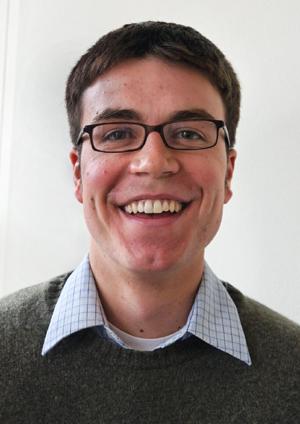
By Michael Rossmann
The most freeing thing I ever did was take vows of poverty, chastity and obedience as a Jesuit. I recognize that initially this can sound, well, sort of crazy.
Many high school- and college-age guys I have talked to, for example, cannot fathom choosing a life without sex, let alone see how such a decision could be freeing. If “freedom” is doing whatever you want, whenever you want it, then taking religious vows — or marriage vows for that matter —seems to create all sorts of restrictions on one’s freedom.
And yet, many of us have experienced how making a decision and sticking to it, rather than endlessly keeping options open until we are absolutely certain, can actually be immensely freeing. Having made a significant decision, we know where we are going; we can plan for the future. And, if making a commitment to marriage or entering religious life is done after discerning who we most authentically are and how God is calling us to love, then we can experience true freedom. In our Catholic understanding, there is no true freedom except in the service of what is good and just.
Having 200 kinds of salad dressing from which to choose at the supermarket gives us options that could suit just about anyone’s fancy, and yet making a choice from a nearly unlimited number of options can also take considerable time and create far more anxiety than having, say, five types from which to choose. We cannot help but feel pressure in thinking that we must choose the perfect one, and then we inevitably experience disappointment if our selection is not so perfect.
Similarly, I see many in my generation who grew up in a context in which we were told that we could do anything we wanted, but who are deeply stressed by what has become the almost yearly ritual of applying for different jobs and programs. The possibilities are endless, but without having made a firm decision about the future, the anxiety can be endless as well.
Recently, I talked with a close friend who had been dating his girlfriend for nearly four years and was seriously discerning how he felt called in this relationship. They were entertaining the idea of marriage, but my friend also had reservations about their future together. Then, his girlfriend’s acceptance into law school in a different part of the country pushed them to consider what they would do next. This decision weighed on him for months until they decided that she would move without him and they would not remain together. As difficult as this was for him, my friend has experienced a new freedom and peace in having made a decision. He does not know what the future will hold exactly, but he knows this next step. He previously wavered between very different outcomes in such a way that it was difficult to make even minor decisions. Now, he at least has a foundation.
We never know for sure whether we have made the “best” decision, but rarely is there only one good option. This does not mean we fail to discern seriously and simply settle for anything that sounds good. At the same time, repeatedly putting off a decision “just to make sure” can actually become a decision; continually trying to keep your options open can end up closing some doors and create all sorts of anxiety in the meantime.
Ultimately, we are called to discern how God may be calling us, actually make some decisions and seek to do what is good in the context of our life choices, and then trust in God to provide. We Jesuits take our vows in front of the Eucharist and conclude by saying to God, in words that still bring me close to tears, “As you have freely given me the desire to make this offering, so also may you give me the abundant grace to fulfill it.” May God give us the strength to decide and the grace to live out such commitments.
(Michael Rossmann is a Jesuit scholastic at Loyola University Chicago and a 2003 graduate of Regina Catholic Education Center in Iowa City. He can be contacted at rossmann.michael@gmail.com).








